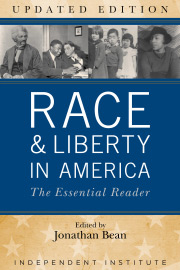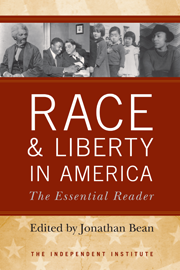Fires don’t discriminate, but clearly fire departments do. In an effort to prevent lawsuits, New Haven’s fire department tried to ensure the “right” proportion of light and dark skin among its firefighters, regardless of merit. But this week, the U.S. Supreme Court struck down this practice, stating that fear of litigation was not a compelling reason to violate the constitutional rights of the men who sought justice in the court room.
The 5–4 majority overturned the lower-court ruling of Judge Sonia Sotomayor, President Obama’s pick for the high court. While pundits will surely call her qualifications into question as her confirmation approaches, we cannot ignore the bigger picture.
After throwing out professional exam results because whites and Hispanics scored higher than blacks, the candidates denied promotion took their case all the way to the U.S. Supreme Court in Ricci v. DeStefano.
While officers were the focus of this case, the incentive to rank-and-file firefighters is diminished, unless they have black skin; and, even then, they need not try as hard as their white or Hispanic counterparts because New Haven clearly valued race over other factors.
This case highlights all that is wrong with “affirmative action as we know it”: employers practice defensive racial preferences, not because they believe it serves the public good, but because they believe it will ward off lawsuits.
This case played out much like the pivotal City of Richmond v. J.A. Croson Co. decision in 1989. In Croson, the city of Richmond, Va., gave such sweeping preference to all minorities—including Eskimos!—that Justice Sandra Day O’Connor wrote the opinion setting down the rules of “strict scrutiny”: in a word, race distinctions were suspect and held to the strictest inquiry. Moreover, race may not be a bona-fide occupational qualification, as it seemed to be in the New Haven case.
Think of a like scenario: If a town decided to scrap professional exams to favor white firefighters, what would the courts do? If the same town spent tax dollars to defend this discrimination, how would impartial observers and courts react?
Anyone familiar with the Civil Rights Act of 1964 knows that it protected people of all races, religions, and both sexes—not just those now “preferred” by some government authority. The legislative record could not be clearer: Hubert Humphrey, the crusading liberal from Minnesota, dismissed the “bugaboo” of quotas and preferences. The law simply banned discrimination of all sorts, and he hoped it would lead to Americans considering each other on their merits, not as representatives of “race.”
Most bugaboos are not real—or so we tell our children—but what will we teach them about this bugaboo? That discrimination is okay, and it “doesn’t really matter”? Except it does matter to its victims and to the meaning of America, just as much now as when blacks, Chinese, Japanese, and others were discriminated against solely on the basis of race.
The Ricci decision offers hope to those who seek justice in the court room and in the workplace. Let us hope that the court, and the American people, go even further and rediscover the classical liberal notion that “our Constitution is color blind”—the philosophy that drove the NAACP to win one case after another in the 1950s and 1960s.
On Monday, “life, liberty, and the pursuit of happiness” became a little more real for those New Haven firefighters. Pray that this is a trend.








